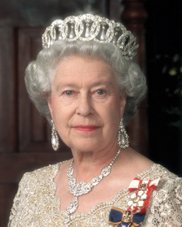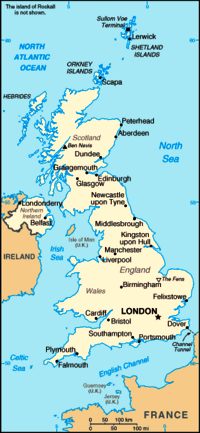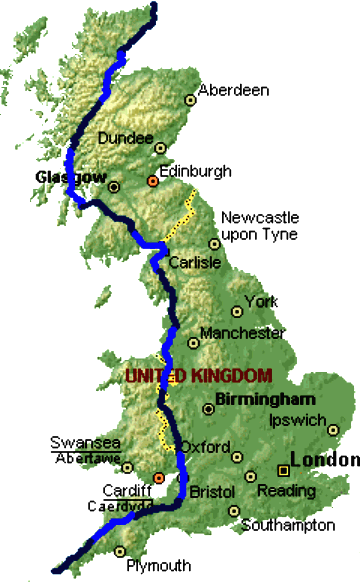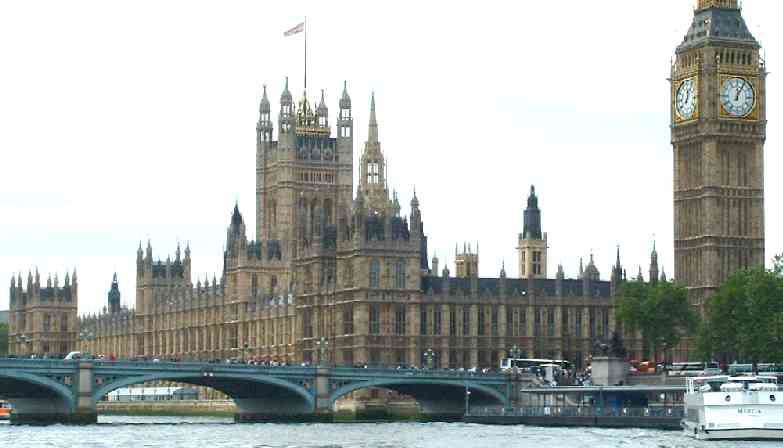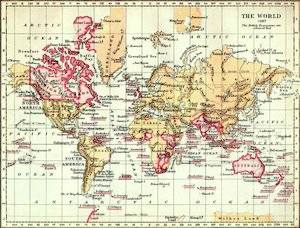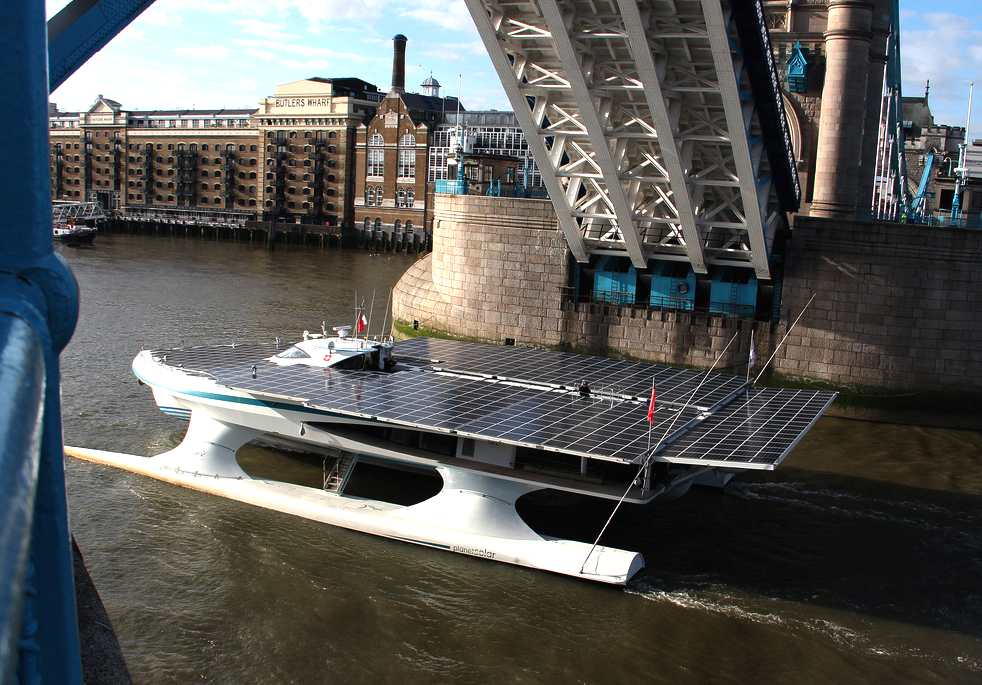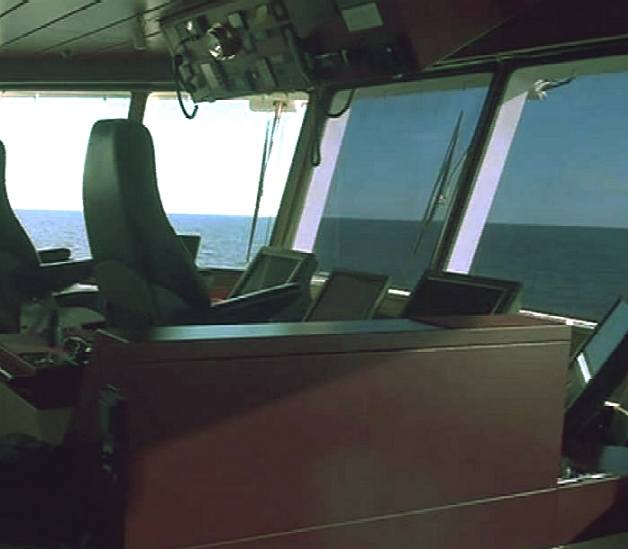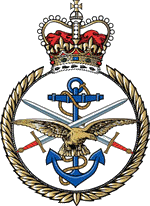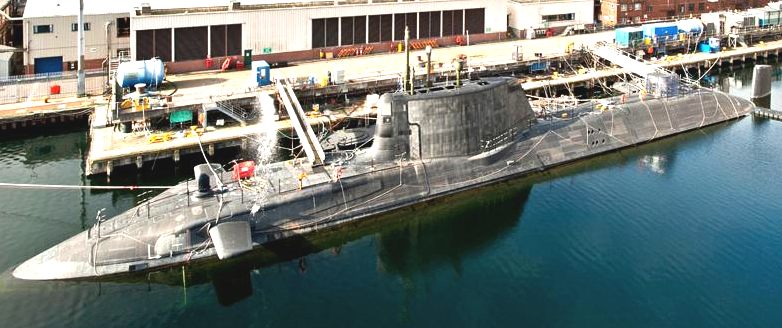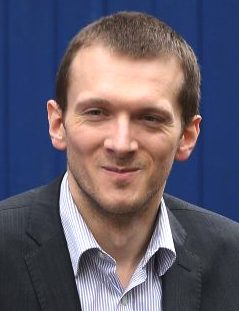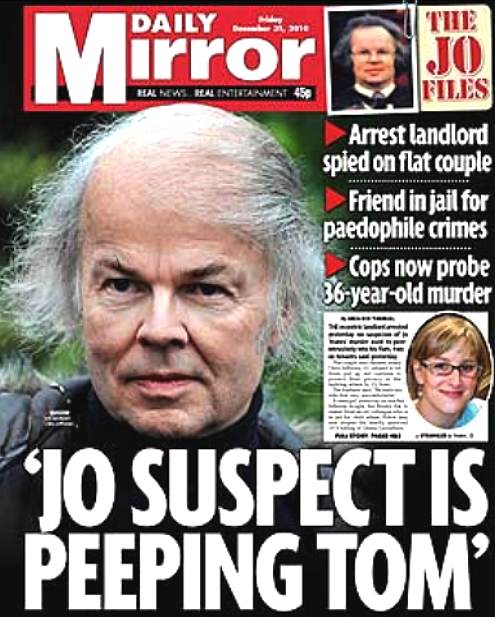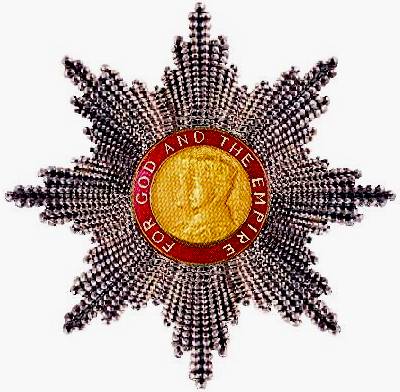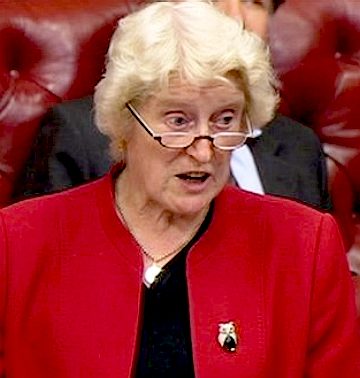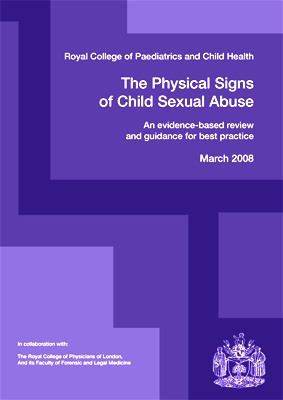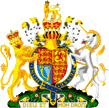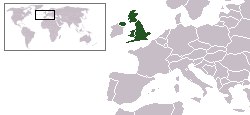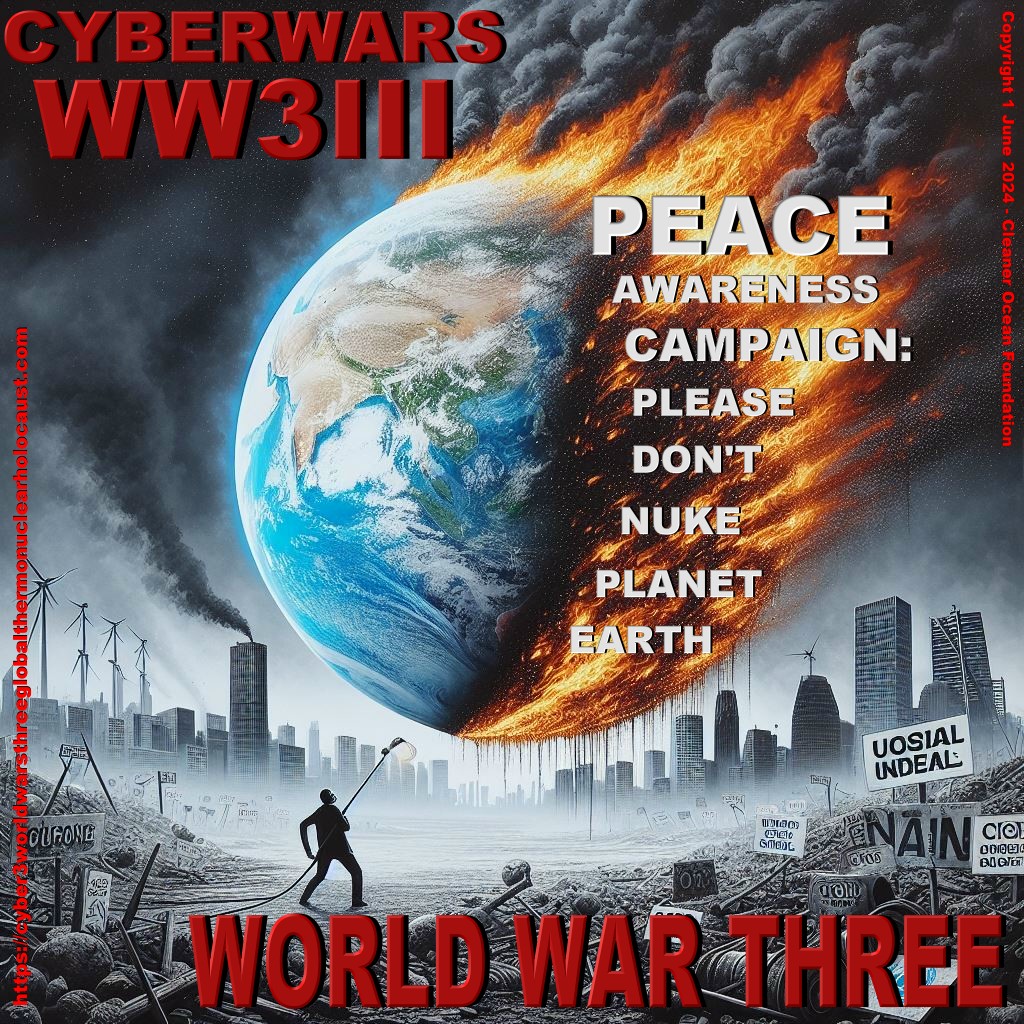|
|
|||||||||||||||||||||||||||||||||||||||||||||||||||||||||||||||||||||||||||||||||||||||||||||||
|
Sir Keir Starmer's Labour party crushed the Conservatives with a landslide victory in July of 2024. The UK needs to stop Councils crushing local innovation - costing the nation £millions. Equally, heritage assets should be conserved, with local authorities that don't do their duty to conserve the historic built environment, stripped of their franchise. The country needs affordable housing, and to create a Grid to take advantage of the abundant energy from nature. The UK could be a clean energy leader, free of fossil fuels by 2040. Provided politicians like the present Prime Minister are able to curb corruption in Parish, District and County councils.
The United Kingdom of Great Britain and Northern Ireland (usually shortened to the United Kingdom, U.K. or the UK) is a country situated in the British Isles off the north-western coast of continental Europe, and surrounded by the North Sea, the English Channel, the Celtic Sea, the Irish Sea, and the Atlantic Ocean.
The United Kingdom, often (inaccurately) referred to simply as 'Britain', is a constitutional monarchy and a unitary state, composed by the political union of four constituent parts: the three constituent countries of England, Scotland, and Wales on the island of Great Britain, and the province of Northern Ireland on the island of Ireland. The UK has several overseas territories, including Gibraltar and the Falkland Islands, and has sovereignty over the Crown dependencies of the Isle of Man and the Channel Islands. The UK has close relationships with the fifteen other Commonwealth Realms, which share the same monarch as head of state.
H.M. Queen Elizabeth II as Queen of Canada RIP
The UK is also one of the more populous member states of the European Union and a founding partner of both the UN (with a permanent seat on the ) and NATO.
The present United Kingdom is the latest of several unions formed over the last 1000 years. Scotland and England have existed as separate political entities since the 10th century. Wales, under the control of English monarchs from the Statute of Rhuddlan in 1284, became part of the Kingdom of England by the Laws in Wales Act 1535. With the Act of Union 1707, the separate kingdoms of England and Scotland, having shared the same monarch since 1603, agreed to a permanent union as the Kingdom of Great Britain.
The Act of Union 1800 united the Kingdom of Great Britain with the Kingdom of Ireland, which had been gradually brought under English control between 1169 and 1691, to form the United Kingdom of Great Britain and Ireland. Independence for the now Republic of Ireland in 1922 brought the partition of the island of Ireland, with six of the nine counties of the province of Ulster remaining within the UK, which changed to the current name in 1929 in recognition.
The United Kingdom, the dominant industrial and maritime power of the 19th century, played a leading role in developing Western ideas of property, liberty, capitalism and parliamentary democracy—to say nothing of its part in advancing world literature and science. At its zenith, the British Empire stretched over one quarter of the Earth's surface and encompassed a third of its population - making it the largest empire in history. The first half of the 20th century saw the UK's strength seriously depleted from the effects of World War I and World War II. The second half witnessed the dismantling of the Empire and the UK rebuilding itself into a modern and prosperous nation.
The UK has been a member of the European Union since 1973. The attitude of the present government towards further integration is conservative, with the official opposition favouring a return of some powers and competencies to the UK. It has not chosen to adopt the Euro as domestic political opinion runs strongly against such a move, whilst the government itself has not seen fit to advance membership based on a judgement of the economic costs and benefits in doing so.
Maps of the United Kingdom. Right: the Lands End to John o'Groats EV Cannonball Rally route - an attempt is planned for 2015, the time to beat 48 hours set in a Tesla in 2013.
UK CANNONBALL ZEV ROUTE BEGINNING AND END GOOGLE MAPS 20 HOUR TARGET @ 50 MPH
GOVERNMENT and POLITICS
The United Kingdom is a constitutional monarchy, with executive power exercised on behalf of the Queen by the Prime Minister and other cabinet ministers who head departments. The cabinet, including the Prime Minister, and other ministers collectively make up Her Majesty's Government. These ministers are drawn from and are responsible to Parliament, the legislative body, which is traditionally considered to be "supreme" (that is, able to legislate on any matter and not bound by decisions of its predecessors). The UK is one of the few countries in the world today that does not have a codified constitution, relying instead on customs and separate pieces of constitutional law.
While the monarch is Head of State and holds all executive power, it is the Prime Minister who is the head of government. The government is answerable chiefly to the House of Commons and the Prime Minister is drawn from this chamber of Parliament by constitutional convention. The majority of cabinet members will be from the House of Commons, the rest from the House of Lords. Ministers do not, however, legally have to come from Parliament, though that is the modern day custom. The British system of government has been emulated around the world - a legacy of the United Kingdom's colonial past - most notably in the other Commonwealth Realms. The Prime Minister is chosen as the MP who can command a majority in the House of Commons - usually the leader of the largest party or, if there is no majority party, the largest coalition. The current Prime Minister is Tony Blair of the Labour Party, who has been in office since 1997.
In the United Kingdom the monarch has extensive theoretical powers, but his or her role is mainly, though not exclusively, ceremonial. The monarch is an integral part of Parliament (as the "Crown-in-Parliament") and theoretically gives Parliament the power to meet and create legislation. An Act of Parliament does not become law until it has been signed by the Queen (being given Royal Assent), although no monarch has refused to assent to a bill that has been approved by Parliament since Queen Anne in 1708. Although the abolition of the monarchy has been suggested several times, the popularity of the monarchy remains strong in spite of recent controversies. Support for a British republic usually fluctuates between 15% and 25% of the population, with roughly 10% undecided or indifferent. The current monarch is Queen Elizabeth II who acceded to the throne in 1952 and was crowned in 1953.
Parliament is the national legislature of the United Kingdom. It is the ultimate legislative authority in the United Kingdom, according to the doctrine of parliamentary sovereignty. It is bicameral, composed of the elected House of Commons and the un-elected House of Lords, whose members are mostly appointed. The House of Commons is the more powerful of the two houses. The House of Commons has 646 members who are directly elected from single-member constituencies based on population. The House of Lords has 724 members (though this number is not fixed), constituted of hereditary peers, life peers, and bishops of the Church of England. The Church of England is the established church of the state in England.
The Palace of Westminster, on the banks of the River Thames
Since the 1920s, the two largest political parties in British politics have been the Labour Party and Conservative Party. Though coalition and minority governments have been an occasional feature of Parliamentary politics, the first-past-the-post electoral system used for general elections tends to maintain the dominance of these two parties, though each has in the past century relied upon a third party to deliver a working majority in Parliament. The Liberal Democrats are the third major party in the UK parliament and actively seek a reform of the electoral system to address the dominance of the two-party system.
Though many in the United Kingdom consider themselves 'British' as well as 'Welsh', 'English', 'Scottish' or 'Irish' (and increasingly also 'Afro-Caribbean', 'Indian' or 'Pakistani'), there has long been a widespread sense of separate national identities in the nations of Wales and Scotland and amongst the Catholic community in Northern Ireland. Independence for the Republic of Ireland in 1922 provided only a partial solution to what had been termed in the 19th Century the 'Irish Question', and competing demands for a united Ireland or continued union with Great Britain have brought civil strife and political instability up to the present day.
Though 'nationalist' (as opposed to 'unionist') tendencies have shifted over time in Scotland and Wales, with the Scottish National Party founded in 1934 and Plaid Cymru (the Party of Wales) in 1925, a serious political crisis threatening the integrity of the United Kingdom as a state has not occurred since the 1970s. However, increased autonomy and devolved executive and legislative powers within the state, with both Scotland and Wales now possessing a legislature and government alongside that for the United Kingdom as a whole, have not reduced support for independence. The contradictions this places upon the state may yet prove to be considerable, where the largest constituent country England seeks no separate legislature and is therefore governed according to the balance of parties across the whole of the United Kingdom (see West Lothian Question). The well-received resurgence in Celtic (Welsh, Scottish, Irish) cultures and languages, as well as 'regional' politics and development, contribute to the forces pulling against the unity of the state, except in the special case of Northern Ireland (where, arguably, crisis is the natural state) there is at present little sign of any imminent crisis.
SUBDIVISIONS
The Laws in Wales Act 1535 incorporated Wales and England into England and Wales for legal purposes.
Although all four have historically been divided into counties, England's population is an order of magnitude larger than the others so in recent years it has for some purposes been divided into nine intermediate-level Government Office Regions. Each region is made up of counties and unitary authorities, apart from London, which consists of London boroughs. Although at one point it was intended that each or some of these regions would be given its own regional assembly, the plan's future is uncertain, as of 2004, after the North East region rejected its proposed assembly in a referendum.
Scotland consists of 32 Council Areas. Wales consists of 22 Unitary Authorities, styled as 10 County Boroughs, 9 Counties, and 3 Cities. Northern Ireland is divided into 26 Districts.
Also sometimes associated with the United Kingdom, though not constitutionally part of the United Kingdom itself, are the Crown dependencies (the Bailiwicks of Jersey and Guernsey, and the Isle of Man) as self-governing possessions of the Crown, and a number of overseas territories under the sovereignty of the United Kingdom.
The British Empire in 1897
GEOGRAPHY
Most of England consists of rolling lowland terrain, divided east from west by more mountainous terrain in the Northwest (Cumbrian Mountains of the Lake District) and north (the upland moors of the Pennines) and limestone hills of the Peak District by the Tees-Exe line. The lower limestone hills of the Isle of Purbeck, Cotswolds, Lincolnshire and chalk downs of the Southern England Chalk Formation. The main rivers and estuaries are the Thames, Severn and the Humber Estuary. The largest urban area is Greater London. Near Dover, the Channel Tunnel links the United Kingdom with France. There is no peak in England that is 1000 metres (3,300 ft) or greater.
Scotland's geography is varied, with lowlands in the south and east and highlands in the north and west, including Ben Nevis, the UK's highest mountain at 1343 metres (4,406 ft). There are many long and deep-sea arms, firths, and lochs. A multitude of islands west and north of Scotland are also included, notably the Hebrides, Orkney Islands and Shetland Islands. The capital city is Edinburgh, the centre of which is a World Heritage Site. The largest city is Glasgow.
Wales is mostly mountainous, the highest peak being Snowdon at 1085 metres (3,560 ft) above sea level. North of the mainland is the island of Anglesey. The largest and capital city is Cardiff, located in South Wales.
Northern Ireland, making up the north-eastern part of Ireland, is mostly hilly. The main cities are Belfast ('Beal Feirste' in Irish) and Londonderry / Derry ('Doire' in Irish). The province is home to one of the UK’s World Heritage Sites, the Giant's Causeway, which consists of more than 40,000 six-sided basalt columns up to 40 feet (12 m) high.
In total it is estimated that the UK includes around 1098 small islands, some being natural and some being crannogs, a type of artificial island which was built in past times using stone and wood, gradually enlarged by natural waste building up over time.
UK's biggest cities:
1. London 2. Birmingham 3. Glasgow 4. Manchester 5. Sheffield
One thing the new Labour leadership might want to tackle is the tendency to hide mistakes, this latest one being the Criminal Cases Review Commission hiding police corruption. The same applies to the Horizon Post Office scandal, where 900 innocent sub-postmasters were prosecuted to cover up a software glitch that ministers knew about. The British justice system stinks to high heaven. Fresh to the task, Labour might now overhaul the law to stop police framing innocent men and women, where convictions are all too easy with the courts bought and paid for with honours.
ECONOMY
The United Kingdom was a leading trading power and financial centre, essentially a capitalist economy, the sixth largest by purchasing power parity (PPP) exchange rates. Following the banking crisis, the UK has a partially regulated market economy - but self regulation is a recipe for repeat offending. Based on market exchange rates the UK is today the sixth-largest economy in the world and the third-largest in Europe after Germany and France, having fallen behind France for the first time in over a decade in 2008.
Over the past four decades, the elected governments various have greatly reduced public ownership by means of privatisation programmes, and has contained the growth of the Welfare State to the point of degrading those claiming state benefits in breach of Article 3 of the Convention of Human Rights and the domestic version; the Human Rights Act 1998, yet still insisting on forcing workers to pay for insurance for times of hardship. The employment minister has been asked to explain and we await his reply.
In effect, the ruling classes want their cake and eat it. The present government (as of 2013) is also encouraging illegal immigrants to enter the country to bolster an economy that is effectively built upon a class system - where a minimum wage is there in principle as statute via the Minimum Wage Act, but in reality the politicians and company bosses work together to slide around it, by turning a blind eye to the black economy. That is of course condoning slave labour by the back door.
Like the US, the UK bailed out banking business with public money, where some banks had been trading irresponsibly, and those businesses, having taken risks and failed, should naturally have gone under to make way for fresh shoots. But some politicians, who are in the pockets of big business, and with investments in banking of their own to protect, rushed to save the banks. There are many politicians today who have considerable business interests that conflict with their duty to represent the electorate fairly.
We say that politicians should not be able to stand for election if they have business interests that could in any way cause a conflict of office. One only has to look at the Expenses Scandal to realise that if you put temptation in their way, politicians will abuse their positions of trust. If you have avenues for corruption at the very top, that bodes not well for the rest of us. The electorate should be able to look up to their elected leaders with absolute trust and admiration for their self-sacrifice. Sadly, that utopian state of affairs is a long way off, beginning with artificially high house prices. With planning officials refusing to make land for affordable housing available in line with the current rolling requirements. This keeps house prices high and the need to borrow more - which of course goes back to keeping the politicians banking interests protected - rather than making it easy for families to buy a home of their own.
Indeed, some politicians see the electorate as a resource to be taxed mercilessly, for them to be able to cream off a good living. And yes, this can be said of many countries. But, it is the quality of life of the average citizen that is the true indicator of the fairness of any political system. Taxation is a measure of how just how much a citizen is a financial slave to the state. The way to keep a population under control is not to give them a right to an effective remedy. That is why in the UK there is no Article 1 and no Article 13 in the domestic Human Rights Act. If these Articles were law in the UK, any member of the electorate might challenge taxation, housing and other social policies (especially employment issues) for compatibility with the Human Rights Act.
The British were once a proud seafaring nation, HMS Victory was the flagship of note - now a reminder of our entrepreneurial past.
TAXATION
As to taxation as an indicator of fairness, consider that in the UK a driver pays road tax, of which only 5% is used to build roads. A citizen is required to pay car tax, tax on petrol, insurance tax, VAT, National Insurance Contributions (another tax) and that is on top of Income Tax. Thus, the working man is being taxed many times over- literally having the blood sucked out of him or her.
Not only are the workers taxed directly, but the company that employs them has to pay corporation tax. When a loved one dies, the state charges death duties. There is Council Tax, Water and Waste charges - all taxes that you have no say over how that money is spent. When you buy a house there is Stamp Duty. There are special duties on cigarettes and alcohol. Tax to watch TV, and endless reminders to pay, even if you don't have a TV. The list goes on. the level of taxation is not only a measure of fairness to the population but also a measure of the bungling of the elected bureaucracy. We think you can see for yourself that this level of taxation is on a par with the days of Robin Hood and the Sheriff of Nottingham. A fair administration would have the lowest levels of taxation. In the UK civil servants are always looking of new ways to tax the population, and new ways to avoid paying out for services that a taxpayer has already paid for.
NATURAL RESOURCES
Agriculture is intensive, highly mechanised, and efficient by European standards, producing about 60% of food needs with only 1.6% of the labour force (535,000 workers). The UK has large coal, natural gas, and oil reserves. Primary energy production accounts for 10% of GDP, one of the highest shares of any industrial state.
Around two-thirds of production is devoted to livestock, one-third to arable crops. Farmers are subsidised by the EU's Common Agricultural Policy. The UK retains a significant, though much reduced fishing industry. It is also rich in a number of natural resources including tin, limestone, iron ore, salt, clay, chalk, gypsum, lead, silica and an abundance of arable land.
SERVICES
Services, particularly banking, insurance and business services, account for by far the largest proportion of GDP. Industry continues to decline in importance, although the UK is still Europe's largest manufacturer of armaments, petroleum products, personal computers, televisions, and mobile telephones. Tourism is also important: with over 24 million tourists a year, the United Kingdom is ranked as the sixth major tourist destination in the world, between China and Austria.
The Blair government put off the question of participation in the Euro system, citing five economic tests that would need to be met before they recommend that the UK adopts the Euro, and hold a referendum.
The Swiss boat PlanetSolar passes under Tower Bridge on its way up the River Thames to Canary Wharf, August 2013. A solar powered circumnavigation was first proposed by a Briton in 1995.
Well,
our industry is on the decline, because we don't back inventors
with new ideas, we only back big companies and
academics, so, inventions that could have been
patented are given away to other countries on a free
basis, which other countries do make things. But, the Industrial Revolution started in the UK with an initial concentration on the textile industry, followed by other heavy industries such as shipbuilding, coal mining, and
steel-making. The empire was exploited as an overseas market for British products, allowing the UK to dominate international trade in the 19th century. As other nations
industrialized, coupled with economic decline after two world wars, the United Kingdom began to lose its competitive advantage and heavy industry declined, by degrees, throughout the 20th century. Manufacturing remains a significant part of the economy but accounted for only 16.7% of national output in 2003.
ENERGY
TRANSPORT
Once is was that Britannia ruled the waves. The UK has long since lost its lead, with Russia, China and South Korea heading the tables in terms of ship production and ship production techniques. Since 2010 European countries such as Sweden, Finland and Germany have been collaborating to stage a technology lead concerning navigation. Two projects in particular are worth a mention under the navigation heading:-
NAVIGATION
- MONA LISA 2
GateHouse is specialises in the development of technical software and system integration for advanced satellite communications and tracking systems. They are a leading independent provider of complete embedded software for Inmarsat BGAN terminals
The Swedish Maritime Administration (SMA) offers modern and safe shipping routes with 24 hour service. SMA is a governmental agency and enterprise within the transport sector and is responsible for maritime safety and the future of shipping, primarily merchant shipping, but also pleasure boating and
fishing. Services include: Port Pilots and Marine Traffic Information
MONA LISA CONTACTS
Magnus Sundström
Chalmers University of Technology is a Swedish university located in Gothenburg that focuses on research and education in technology, natural science, and architecture. Chalmers homepage
Aptomar AS is a Norwegian company located in Trondheim specialising in marine sensor systems such as the SECurus system that combines advanced stabilized long range IR and digital video cameras with an Electronic Chart System which overlays information of several sources for a speedy evaluation of real time situations for good response. Aptomar AS homepage
University College Cork UCC is situated in south-west Ireland and was founded as a Queen’s College in 1845. The Law Department at UCC is at the forefront of legal research in Ireland, the EU and internationally in various areas, including environmental law, human rights, marine law, business law, comparative law, constitutional law and legal theory. UCC homepage
MUNIN CONTACTS
Ørnulf Jan Rødseth
Tri-service badge of Her Majesty's Armed Forces. Anchor representing: Royal Navy crossed swords: Army Eagle: Royal Air Force
MILITARY
The armed forces of the United Kingdom are known as the British Armed Forces or Her Majesty's Armed Forces, officially the Armed Forces of the Crown. Their Commander-in-Chief is the King and they are managed by the Ministry of Defence.
The armed forces of the UK are also sometimes known as Her Majesty's Armed Forces or the Armed Forces of the Crown. They consist of three professional service branches: the Naval Service (including the Royal Navy, Royal Marines and Royal Fleet Auxiliary), the British Army, and the Royal Air Force. The forces are managed and controlled by the Defence Council, chaired by the Secretary of State for Defence. The Commander-in-Chief is the British monarch, Elizabeth II, to whom members of the forces swear an oath of allegiance.
The British Armed Forces are charged with protecting the United Kingdom and its overseas territories, promoting the United Kingdom's wider security interests, and supporting international peacekeeping efforts. They are active and regular participants in NATO and other coalition operations. The United Kingdom fields one of the most powerful and comprehensive military forces in the World. Its global power projection capabilities are second only to those of the United States Armed Forces.
The British Army had a reported strength of 112,700 in 2004, including 7,600 women, and the Royal Air Force a strength of 53,400. The 40,900-member Royal Navy is in charge of the United Kingdom's independent strategic nuclear arm, which consists of four Trident Ballistic Missile Submarines, while the Royal Marines provide infantry units for amphibious assault and for specialist reinforcement forces in and beyond the NATO area. This puts total active duty military troops in the 210,000 range, currently deployed in over 80 countries.
The UK's special forces, principally the SAS, provides elite commandos trained for quick, mobile, military responses; often where secrecy or covert operations are required. The Royal Navy is the second largest navy in the World in terms of gross tonnage. Despite the United Kingdom's wide ranging capabilities, recent pragmatic defence policy has a stated assumption that any large operation would be undertaken as part of a coalition. Bosnia, Kosovo, Afghanistan, Iraq (Granby, No-Fly-Zones, Desert Fox and Telic) may all be taken as precedent - indeed the last true war in which the British military fought alone was the Falklands War of 1982, in which military action was initiated by Argentina and the UK was fighting a defensive, rather than offensive, campaign.
According to various sources, including the Stockholm International Peace Research Institute and the Ministry of Defence, the United Kingdom has the fourth-highest military expenditure in the world. Total defence spending currently accounts for around 2.3% – 2.6% of total national GDP.
The Ambush: an Astute class Royal Navy submarine in 2012 - will it be obsolete before completion? A $3Million hunter/killer mini-submarine can sink one of these $Billion dollar behemoths. Some countries never accept change until it's too late.
BRITISH NAVIGATION ACTS
The British Navigation Acts (originally the English Navigation Acts) were a series of increasingly restrictive cabotage laws designed to curtail use of foreign bottoms (ships) for foreign trade to or from Britain and throughout the British Empire. In 1645, Parliament enacted a law restricting the import into England of whale products to ships owned by the royally-chartered Greenland Company. The Parliament of the Commonwealth of England adopted the Navigation Ordinance of 1651, restricting English trade to English vessels. It prohibited foreign ships from transporting non-European goods to England or its colonies and prohibited third-country ships from transporting goods between England and other European countries. The law was primarily designed to limit competition from the Netherlands, which had previously dominated English foreign trade. In 1660, the law was reenacted and broadened, requiring that the crew on ships authorized to engage in the restricted trade had to be at least three-quarters English. It also provided that certain colonial-origin products not produced in England (primarily tobacco, cotton, and sugar) could be shipped from the colony of origin only to England or to other English colonies.
The
Navigation Act 1663 prohibited European goods from being shipped directly to the colonies, requiring that they be transshipped through England. The definition of Europe included islands in the Atlantic north of the latitude of the
Strait of
Gibraltar. This inadvertently omitted the Madeira Islands, allowing Madeira wine to be imported directly into the American colonies. Madeira soon became the most widely consumed wine in the region. It was a favored beverage of many of our founding fathers, and some of our founding mothers as well. In 1733, Parliament adopted the Molasses Act, imposing high taxes on sugar imported into the British Empire from the
French West Indies. The major result of this legislation was a significant increase in the smuggling of sugar and other goods into the American colonies and further tension between those colonies and the British Government. When the United States gained its independence, it promptly adopted cabotage laws similar to those in force in the United Kingdom. While the United Kingdom largely repealed its cabotage laws in 1849, the
United States has retained its version.
LAW and CRIMINAL JUSTICE
Crime in Scotland fell to its lowest recorded level for 32 years in 2009/10, falling by ten percent. At the same time Scotland's prison population, at over 8,000, is at record levels and well above design capacity. The Scottish Prison Service, which reports to the Cabinet Secretary for Justice, manages Scotland's prisons. In 2006 a report by the Surveillance Studies Network found that the UK had the highest level of mass surveillance among industrialised western nations.
UK prisons are notorious for breaching Human Rights and not following the Prison Rules, in particular the European Prison Rules. Prisoners in English prisons are not paid a wage in order to be able to support their families, nor to save for release. They are forced to work in kitchens for a £5-10 a week, rather than be able to study to improve themselves. On release they are required to attend a course which effectively tells them how to lie to potential employers, and that is because the state has made them all but employable. Since there is no Article 13 in domestic law, this situation will go unchallenged. There is no legal aid for such challenges - another cutback, that is actually designed to protect an unfair system.
The conviction rate for some offences in the UK have been artificially boosted for political gain. In days gone by someone accused of a sexual offence would have a relatively fair trial. One should here bear in mind the number of false allegations of rape, etc. In order to increase the conviction rate, the Justice Secretary passed an act preventing a Judge from giving a warning to Juries to be careful of convicting a person without some form of supporting evidence. Once that statute was in place, English justice went back to the dark ages. A person accused of a sex crime was then required to prove his innocence - because there is now a presumption of guilt. That may be contrary to Article 6, "innocent until proven guilty", but that is the case. It's a witch trial situation. Innocent if you drown, guilty if you float.
The quirk in this particular system is that it is illegal for anyone under 16 to engage in sexual activity, and yet we know that most girls and boys have lost their virginity before 16 - making them all sex criminals. The reason that UK jails are not busting at the seams, is that the Police don't prosecute anyone under 16 for having sex even though it is a criminal offence. Indeed, it is the other way around. Doctors actually prescribe condoms and the like for girls as young as 13, knowing that that is condoning illegal sexual activity. Why? Because if they didn't the birth rate would soar and the number of underage mothers would be huge. Then of course would come the question of prosecuting the under age mother, and with DNA testing, the father as well. If the law were to be applied with equal vigor to teenagers, the prison population would be around 500,000 at any one time and virtually all the population would be criminalised. That is when the new "Witch" trials would come into focus.
JEREMY FORREST - LOVE & GEOGRAPHY
In France Jeremy's love affair with his pupil would not raise many eyebrows, where the age of consent is 13. If he had been 15 in England, no worries. Pork away. But, he was a teacher in a land obsessed with sex, or rather; preventing sex with any age differential. Clearly though, the two are in love and that overtook them as they threw caution to the wind, heading across the channel.
Prosecutor Richard Barton said in his closing speech: ‘You do not have to decide whether he was a paedophile. You may consider, in the context of what he did, that is not an inappropriate label for him.
Forrest was described by friends and family as a 'talented and inspirational' teacher who 'cared for others', while peers viewed him as gifted.
The maths teacher was praised by former colleague Benedict Beaumont, a former ICT teacher at Bishop Bell School, who described him as 'one of the most gifted teachers that I have ever met'.
www.dailymail.co.uk/Married-teacher-Jeremy-Forrest-guilty-abducting-schoolgirl-lover-15-fled-France
CHRIS JEFFERIES
One case of particular note, had it gone to trial, is that of Chris Jefferies. The media had condemned him as guilty before any charge had been laid. They did this on the basis of probability and to sell newspapers. There was no thought of justice, or obtaining justice. They were pandering to presumed public opinion.
The manner in which certain aspects of the case were reported by the British media led to one television broadcaster being temporarily banned from attending press conferences, and the instigation of legal proceedings against several newspapers by both Yeates' former landlord, and the Attorney General.
It is bad enough that a young lady had been murdered, but to seek to
capitalise on that fact is not only immoral but criminal irresponsibility.
PHONE TAPPING
The phone tapping scandal is another issue that brings the press and the criminal justice system into disrepute. The press were breaking the law to obtain private information and the Information Commissioner knew all about it but were turning a blind eye - for who knows what reason. Yet again the press cannot be relied on to report impartially and in accordance with the laws of the land.
GREAT BRITISH TRADITIONS - DAMES
The Most Excellent Order of the British Empire is an order of chivalry established on 4 June 1917 by King George V. The Order is composed of five classes in civil and military divisions. In descending order of seniority, these are: 2. Knight or Dame Commander of the Most Excellent Order of the British Empire (KBE or DBE) Only the highest two ranks automatically entitle its recipient to become a knight or dame, an honour allowing (but not prescribing) the postulant to use the title "Sir" (male) or "Dame" (female) before his or her first name (though men can be knighted separately from this and other Orders of Chivalry). Honorary knighthoods, given to individuals who are not nationals of a realm where
Queen Elizabeth II
was Head of State, permit use of the honour as a post-nominal but not as a title before their name. Awards in the Order of the British Empire were discontinued in those Commonwealth realms that established national systems of honours and awards such as the Order of Canada, the Order of Australia and the New Zealand Order of Merit. Foreign recipients are classified as honorary members of the Order they receive, and do not contribute to the numbers restricted to that Order as full members do.
Dame Butler Sloss, outspoken on childcare and the science of forensic examinations. There is much research needed if the UK is to stop convicting innocent men, when girls that claim to have been raped are in fact still virgins.
MID TRIAL REPORTING & ARTICLE 6 VIOLATIONS
These cases are just the tip of the iceberg. Publication in certain cases are prohibited by Order of the Courts, yet in at least one case we know of, the press ignored the Court Ban. Strangely, when this was brought to the attention of the trial Judge, who must have known of the importance of not prejudicing the case for the defence, this Judge simply lifted the ban mid trial. Yet there is established case precedent that such publication destroys any chance of a fair trial. While in contempt of court, criminal charges should properly have been brought against the offending newspapers.
SOCIETY
Demographics
At the April 2001 census, the United Kingdom's population was 58,789,194, the third-largest in the European Union (behind Germany and France) and the twenty-first largest in the world. Its overall population density is one of the highest in the world. Almost one-third of the population lives in England's prosperous south-east and is predominantly urban and suburban - with about 7.2 million in the capital of London. The United Kingdom's high literacy rate (99%) is attributable to universal public education introduced for the primary level in 1870 and secondary level in 1900 (except in Scotland where it was introduced in 1696). Education is mandatory from ages five to sixteen.
The Church of England and the Church of Scotland function as the official national religions in their respective countries, but most religions found in the world are represented in the United Kingdom. Anglicanism is the state religion that has been established in England since 1534 during the reign of King Henry VIII. During his reign, England broke ties with the Roman Catholic church and established the Church of England as the official religion of England. Reforms to the nature of the church's relationship to the state have been ongoing, especially concerning the nature of the House of Lords and the appointment of a fixed amount of the lordships going to Lords Spiritual, Bishops of the Church of England.
A group of islands close to continental Europe, the British Isles have been subject to many invasions and migrations, especially from Scandinavia and the continent, including Roman occupation for several centuries. Contemporary Britons are descended mainly from the varied ethnic stocks that settled there before the eleventh century. The pre-Celtic, Celtic, Roman, Anglo-Saxon, and Norse influences were blended on Great Britain under the Normans, Scandinavian Vikings who had lived in Northern France. Although Celtic languages persist in Wales, Scotland, and Northern Ireland, the predominant language is English, which is a West Germanic language descended from Old English, featuring a large amount of borrowings from Norman French. The other indigenous languages include the Celtic languages; Welsh, the closely related Irish and Scots Gaelic, and the Cornish language; as well as Lowland Scots, which is closely related to English; Romany; and British Sign Language (Northern Ireland Sign Language is also used in Northern Ireland). Celtic dialectal influences from Cumbric persisted in Northern England for many centuries, most famously in a unique set of numbers used for counting sheep.
Recent immigrants, especially from the Commonwealth, speak many other languages, including Bengali, Cantonese, Hindi, Punjabi and Urdu. The United Kingdom has the largest number of Hindi speaking peoples outside of the Indian sub continent.
DOOMSDAY OPERATION GRAND SLAM - Disillusioned extremists in Iran, North Korea and Russia, have grown impatient waiting for their leaders to act decisively, having watched the Ukraine debacle of Vladimir Putin rebound to weaken their CRINK axis members. This despite Hamas launching against Israel and Houthi attacks on the Red Sea. All that had the effect of waking the sleeping giant: NATO.
They
hatch a plot to kidnap top politicians from the west to create confusion, as
a prelude to an all out cyber
nuclear first and second strike, having first stockpiled sufficient gold
and weapons reserves, and fallout bunkers for their cells, to be able to
stage a second wave of conventional attacks, to in effect, take over the
world after the nuclear holocaust they
have engineered. Including assassinating their jaded leaders: Xi
Jinping; Vladimir
Putin, Iranian Grand Ayatollah, Ali
Khamenei, and Kim
Jong Un, supreme leader of communist North
Korea.
CULTURE
The United Kingdom contains many of the world's leading universities, including the University of Cambridge, the University of Oxford, the University of Edinburgh and the University of London (which incorporates, amongst others, Imperial College and University College London), and has produced many great scientists and engineers including Sir Isaac Newton, Charles Darwin and Isambard Kingdom Brunel; the nation is credited with many inventions including the locomotive, vaccination, television, the railway, and both the internal combustion, jet engine and solar powered world navigator, not to mention the Joystick controlled car and the battery cartridge refueling system for electric vehicles.
The English language has spread to all corners of the world (primarily because of the country’s empire and the influence of the United States) and is referred to as a ‘global language’. It is taught as a second language more than any other around the world.
Playwright William Shakespeare is arguably the most famous writer in the history of the English language; other well-known writers from the United Kingdom include the Brontë sisters (Charlotte, Emily, and Anne), Jane Austen, William Thackeray, J. R. R. Tolkien, John Milton, H. G. Wells, Charles Dickens, and J.K. Rowling. Important poets include Lord Byron, Robert Burns, Lord Tennyson and William Blake.
Notable composers from the United Kingdom have included William Byrd, John Taverner, William Lawes, John Dowland, Thomas Tallis, and Henry Purcell from the 16th and early 17th centuries, and, more recently, Sir Edward Elgar, Sir Arthur Sullivan (most famous for working with librettist Sir W. S. Gilbert), Ralph Vaughan Williams and Benjamin Britten in the 19th and 20th. George Frideric Handel spent most of his composing life in England.
The BBC is the oldest and perhaps the most respected network on the globe, with the BBC World Service radio channel and its news output held in particularly high regard. The other main television networks are ITV, Channel 4, Five and Sky Television. Popular programmes in the UK include the three major soaps - Eastenders, Coronation Street and Emmerdale - as well as the comedy news quiz Have I Got News For You and Reality TV shows such as Big Brother. Various British TV formats have been exported to other nations, notably Who Wants To Be A Millionaire?, The Weakest Link and The Office.
The UK was, with the US, one of the two main contributors in the development of rock and roll, and the UK has provided some of the most famous rock stars, including The Beatles, Queen, Led Zeppelin, Pink Floyd, the Rolling Stones, The Who, and many others. The UK was at the forefront of punk rock music in the 1970s with bands such as the Sex Pistols and The Clash, and the subsequent rebirth of heavy metal with bands such as Motörhead and Iron Maiden. In the mid to late 1990s, the Britpop phenomenon saw bands such as Oasis, Blur, Radiohead and Coldplay gain international fame. The UK is also at the forefront of electronica, with British artists such as The Prodigy, Aphex Twin, Nitin Sawhney and Lamb at the cutting edge. The United Kingdom is also associated with music from the Caribbean, with a large number of Jamaicans and other Caribbean nationals being present in the UK. Recent rock bands to emerge as great talents are the Kaiser Chiefs (all ex-temporary teachers from Leeds) and Franz Ferdinand.
SPORT
A great number of major sports originated in the United Kingdom, including football, golf, cricket, rugby, tennis and boxing.
The national sport of the UK is association football, but the UK does not compete as a nation in any major football tournament. Instead, the home nations compete individually as England, Wales, Scotland and Northern Ireland. It is because of this unique four-team arrangement that the UK currently does not compete in football events at the Olympic Games. However, a united team took part in the 2012 Summer Olympic Games where many gold medals were taken in London. The English and Northern Irish football associations have confirmed participation in this team while the Scottish FA and the Welsh FA have declined to participate.
The UK also hosts many world-renowned football clubs, such as Manchester United, Liverpool, Chelsea and Arsenal in England and Rangers and Celtic in Scotland. Clubs compete in national leagues and competitions and some go on to compete in European competitions.
British teams are generally successful in European Competitions, including the following European Cup/UEFA Champions League winners: Liverpool (five times), Manchester United (twice), Nottingham Forest (twice), Aston Villa and Celtic.
Both forms of rugby are national sports. Rugby League originates from and is generally played in the North of England, whilst Rugby Union is played all over Britain. In Rugby League the UK plays as one nation - Great Britain - whilst in union it is represented by the four nations. England are the current holders of the Rugby Union World Cup. Every four years the British and Irish Lions (comprising the best players from England, Scotland, Wales and Ireland) tour other countries.
The Wimbledon Championships are international tennis events held in Wimbledon in south London every summer and are seen as the most prestigious of the tennis calendar.
Thoroughbred racing is also very popular in England. It originated under Charles II of England as the "Sport of Kings" - and is a royal pastime to this day.
Golf is one of the most popular participation sports played in the UK and St Andrews in Scotland is the sport's home course. Cricket is also popular, though this is almost exclusive to England.
LINKS:
BBC Nations History of the nations within the UK. British Broadcasting Corporation (BBC) Gateway to UK governmental services and websites. Office of Public Sector Information Source for all UK legislation 1987-present (successor to Her Majesty's Stationery Office). The British Isles Independent view of the UK. Official Yearbook of the UK factbook produced by the Office for National Statistics (years 2000 to 2005 available online). UK Cities lists a variety of useful resources for every city in the UK. UK travel guide United Kingdom for travellers. World66 Guide to United Kingdom A travel guide written by its users. Travel Advisories for the UK Updated section on travel dangers. http://www.multimap.co.uk/ provides online maps and aerial photographs of the UK. http://www.streetmap.co.uk/ an alternative to MultiMap. Just Landed United Kingdom - Useful info for moving to the United Kingdom. Physical map of United Kingdom. http://www.upmystreet.com/ detailed localised information about places in the United Kingdom. UK Parks National parks, Areas of Outstanding Natural Beauty and other protected areas.
LINKS :
Travel guide to London from Wikitravel The Open Guide to London (http://london.openguides.org/) is a project to document all of London in a wiki. London Guide (http://www.englandguide.co.uk/London) London Guide on Englandguide.co.uk World66 Guide to London (http://www.world66.com/europe/unitedkingdom/england/london) A travel guide written by it's users.
First chapter of the book "London: The Biography" (http://books.guardian.co.uk/firstchapters/story/0,6761,544022,00.html) by Peter Ackroyd
Mayor of London, the London Assembly and the Greater London Authority official web site for the Mayor of London and the London Assembly. www.london.gov.uk London (http://earthobservatory.nasa.gov/Newsroom/NewImages/images.php3?img_id=10917) at NASA's Earth Observatory
An Explanation of the Name of London (http://www.cogs.susx.ac.uk/users/richardc/london2.ps) (PostScript file) London from Evening Standard (http://www.thisislondon.com/) London Weather Forecast (http://www.asinah.org/weather/EGLL.html) London Restaurants Guide (http://www.london-eating.co.uk/). London Bars and Pubs Guide (http://www.london-drinking.com/). London Directory (http://www.netlondon.com/) more London Directories (http://www.londontown.com/directory/) Transport for London Site (http://www.transportforlondon.gov.uk/tfl/) London Underground (http://tube.tfl.gov.uk/)The Tube Hotels in London (http://hotels.iib.co.uk/hotel/city/United-Kingdom/London.html) London Hotels (http://www.2pl.com/London/bs-1250300001.htm) 2PL Network The Londinium directory of London (http://www.londinium.com) Urban Path: Nice things in London (http://www.urbanpath.com) London Hotels (http://www.londonhotelseye.com/) LoveMyTown - City of London (http://www.lovemytown.co.uk/CityProfiles/London/index.htm) civic pride facts and organisations in London https://www.royal.gov.uk/MonarchUK/Honours/OrderoftheBritishEmpire.aspx http://en.wikipedia.org/wiki/Order_of_the_British_Empire
Solar Cola drinkers care about planet earth
.. Thirst for Life
(330ml Planet Earth can)
|
|||||||||||||||||||||||||||||||||||||||||||||||||||||||||||||||||||||||||||||||||||||||||||||||
|
This website is Copyright © 1999 & 2024 MEL. The bird logos and name Solar Navigator are trademarks. All rights reserved. All other trademarks are hereby acknowledged. Max Energy Limited is an educational charity working hard for world peace.
|
|||||||||||||||||||||||||||||||||||||||||||||||||||||||||||||||||||||||||||||||||||||||||||||||

